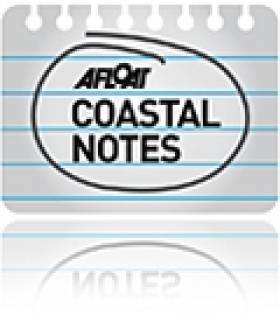Displaying items by tag: Radio Caroline North
#RadioCaroline- Fifty years ago today, a revolution in radio broadcasting boomed from a ship that dropped anchor off the Isle of Man as the airwaves of Radio Caroline North became the epicentre of 60's pop culture, writes Jehan Ashmore.
The famous pirate radio station of Radio Caroline North, was the brainchild of enigmatic Irishman Ronan O'Rahilly, who based his defiant operation on board M.V. Caroline which anchored three miles offshore of Ramsey on the north-east of the island.
Radio Caroline's southern counterpart anchored in the English Channel, together they where a reaction to the BBC's staid monopoly of the airwaves and avoided UK government control by anchoring outside territorial waters.
A musical kaleidoscope transitted The Beatles, Bob Dylan, The Beach Boys and countless more hits. Not only were thousands of Manx teenagers enjoying the sounds that epitomised the music youth of that era but to the millions of young people in the UK and Ireland.
Of the two stations, Radio Caroline North was the more successful. Employing professional DJ's from the UK but also from the USA, Canada and Australia who released the lastest pop-releases and chart-hit successes. Added to this heady mix of music were very popular DJ's whose exuberant attitude defied the powers of the establishment.
The arrival of such an enterprise led to the Ramsey Steamship Company acting as the ships's agents, which involved tenders supplying provisions and ferrying personnel back and forth to the small port. Afloat.ie profiled Ramsey in a report during May.
A fine model of one of their former general cargo-ships, Ben Varrey is on display in the Ramsey Heritage Centre and is where a wealth of history is to be found including this nautical nugget of information.
Only last year the Ramsey Steamship Co. ceased trading, having begun operations 101 years ago.
The company's second general-cargo, Ben Maye was chartered for a Lockout 1913 centenary event by re-enacting a voyage as the S.S. Hare which brought vital food-supplies to Dublin from Liverpool.





























































